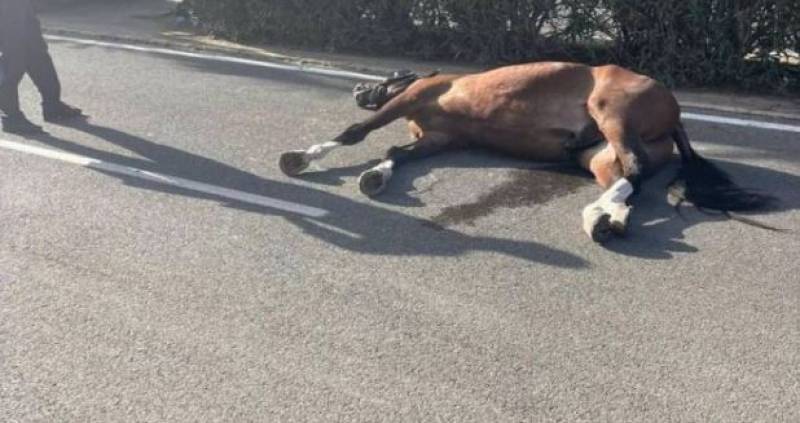Spanish News Today Editors Roundup Weekly Bulletin Mar 7
TOP STORIES: "A week of rain and deadly storms in Spain" & "The airport where Ryanair is expanding summer flights instead of scaling down"
Our main focus in the Editor’s Roundup Weekly Bulletin for this week is the torrential rain and the thunderstorms which have been pummelling Spain this week. But we’ve also got train strikes and a series of tragic deaths for you, plus one of the few Spanish airports where Ryanair is expanding its summer flight operations, at least in terms of frequency and seat numbers, instead of scaling down the number of routes it runs.
Let’s dive into this veritable deluge of news.
Who’ll stop the rain?
True to the old adage, March has well and truly come in like a lion, and with any luck it will go out like a lamb, but we’ll have to wait another three weeks to see about that.
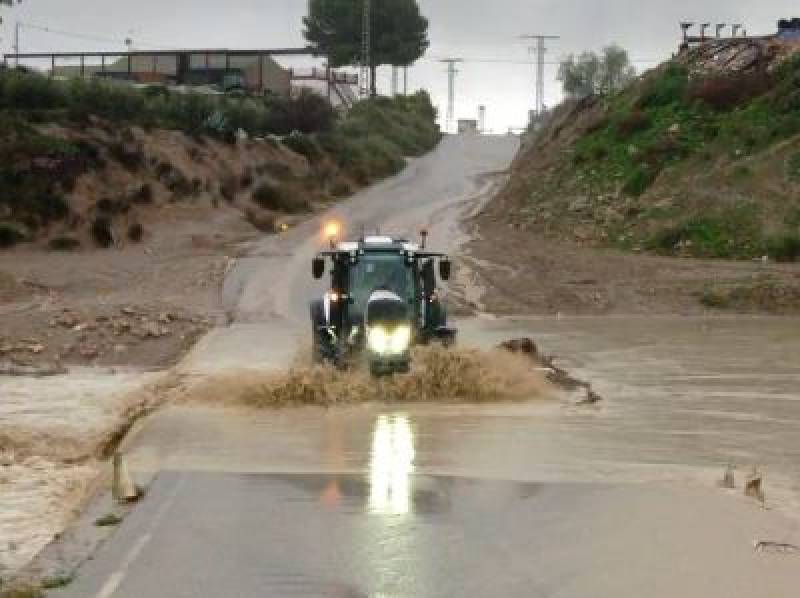
This week brought
torrential rain to parts of Spain and, as so often when it rains heavily in the south of the country, it led to the inevitable episodes of flooding, cars trapped in river swells and broken buildings.
Meteorologically speaking, it was a collision of cold northern air with warmer, moisture-laden air which brewed up a particularly nasty low-pressure system, setting the stage for a week of relentless storms. The Mediterranean and Andalucía have been hit hardest, with some areas drowning under more than 100mm of rain in just 12 hours.
Schools were closed on Thursday and Friday in several western Murcia districts, as were quite a lot of roads all around the Region. A section of the RME-22 road between Cartagena and Mazarrón once again began to sink, just a couple of years after a great hole fell off the side of it and it had to undergo costly repairs that promised something like this could never happen again.
In Lorca’s districts of Ramonete, Garrobillo and Almendricos, the damage is estimated at over €15,000,000. Roads have been obliterated, with cracked asphalt, potholes and collapsed crossings. The beaches haven’t fared much better, with coastal areas being buried under debris and plastic waste.
In the city of Lorca itself, part of a retaining wall of the old muralla collapsed due to continuous water leaks. Fortunately, this wasn’t a priceless mediaeval relic but a relatively modern structure built in 2013. Still, it’s not great news for the residents living above it, who had to be evacuated just in case the ground decided to shift some more.
As if that weren’t enough, the mains water supply network has also taken a hit in some areas, such as Lorca. While the drinking water was off, tanker trucks had to step in.
The environmental impact is another headache to contend with, as ever, with the already fragile Mar Menor
once again at risk. The Albujón rambla, a watercourse notorious for dumping waste and sediment into the lagoon, has been overflowing, raising alarms about yet another ecological disaster.
Ramón Pagán from the Pacto por el Mar Menor group has given the grim warning that history might be repeating itself after previous major storms in 2016, 2019 and 2021 wreaked havoc on the ecosystem.
But it’s not all doom and gloom. Some Murcian farmers are actually welcoming the rain. After months of dry conditions, crops like cereals have been in desperate need of water, and the general secretary of the farming association ASAJA Murcia, Alfonso Gálvez, went so far as to call the downpour a “salvation”. That said, a little moderation wouldn’t hurt: less of a biblical flood and more a gentle spring shower.
And, of course, as ever a little rain is good for the aquifers and reservoirs that supply southern Spain with part of its supply of fresh water. If it helps to stave off any drought and hosepipe bans (difficult to imagine when it’s like this, I know!), then at least it’s done some good. Every cloud.
The whole week’s events have once again raised the conversation of the preparedness of southern Spain’s infrastructure to be able to deal with increasingly common episodes of persistent, heavy rainfall. It’s like how the roads melt in the UK and Ireland every other summer now (and very nearly this week, too, which was gorgeous up in the north of Europe!) because those places are not built for that kind of weather.
The Confederación Hidrográfica del Segura (CHS) has big plans, including €130 million in EU-backed flood prevention works, but until those materialise, Murcia remains as flood-prone as ever.
Murcia isn’t the only region drowning in misery. Over in Gran Canaria, the
airport had to be shut down after runways turned into impromptu swimming pools. This came just a day after flash floods sent cars tumbling down ravines and straight into the sea.
The town of Telde bore the brunt of it, with roads submerged in mud and residents doing their best to shovel their way back to normality. The mayor, Juan Antonio Peña, urged everyone to stay home and be cautious, a sensible approach given that entire vehicles have been spotted floating off the coast.
Over in Alicante and Valencia, it’s a
similar story. Authorities issued an orange alert, bracing for over 100mm of rainfall in just half a day. Schools have been closed, outdoor activities cancelled, and residents told to steer clear of ravines because, as history has repeatedly shown, they have a nasty habit of turning into raging torrents.
Sadly, a 55-year-old fisherman in Torrevieja was found dead, another victim of the relentless storm. The Valencian Community has been particularly jumpy about bad weather ever since last year’s devastating floods claimed over 200 lives, and officials aren’t taking any chances this time around.
Andalucía, too, got its fair share of flooded roads, emergency rescues and
general havoc. Jerez de la Frontera and Málaga were among the worst-hit areas earlier this week, with roads disappearing under water and vehicles getting stranded left, right and centre.
In one particularly dramatic rescue operation, firefighters had to save 40 people from 20 vehicles trapped on the AP-4 motorway after the Arroyo Salado river overflowed. Emergency services have been inundated with calls, mostly about submerged roads, minor flooding and fallen trees, but so far, there haven’t been any major casualties.
And just when you thought it was safe to go back outside, along comes
Storm Jana. This delightful new weather system is set to roll in this weekend, bringing a renewed burst of rain, strong winds and yet another drop in temperatures.
Aemet, Spain’s meteorological agency, has confirmed that this storm will be a whopper, at least for the north and centre of mainland Spain, with deep low-pressure zones and even more secondary storm cells forming around it. But for the southeast, while it will still be wet, windy and cold, it is expected that this weekend’s storm will be less destructive than what we had over the rest of the week.
Please stay safe out there. Don’t drive if you don’t have to, and if you do have to then DEFINITELY do not attempt to drive through an area of floodwater. If you don’t know how big the puddle is, do not try to cross it. Time and time again, cars become trapped in standing flood water like this and the emergency services have to help people to safety. Don’t let that be you. Stay home and binge Netflix, instead.
Who’ll stop the trains?

If you’re planning on taking advantage of the many great deals available on train travel at the moment, you just might want to check the latest schedules first and be prepared for some major disruptions. Rail workers across Spain are threatening
yet another strike during March and April and sadly which will take place over seven days, with a mix of full-day and partial walkouts.
So, what’s behind the latest round of strike action? Well, it all comes down to some changes in the management of regional rail services that the unions aren’t too happy about. They feel that the Ministry of Transport hasn’t kept its promises, made back in November, to keep Renfe and Adif as the operators of regional and freight rail services.
And to make matters worse, they’re concerned about what they see as a “covert privatisation” of Renfe Mercancías, with logistics giant MSC getting involved in the capital of a new company managing freight services.
The unions are worried that this could lead to job losses, a decline in service quality and even safety risks. They’re also concerned that splitting responsibilities between different operators could make the system more expensive and less effective.
Assuming it is not all called off first, the industrial action will begin on Monday March 17, 2025, with a 24-hour strike, followed by two further full-day stoppages on Tuesday March 26 and Tuesday April 1.
In addition, partial strikes are planned on Wednesday March 19, Sunday March 24, Friday March 28 and Thursday April 3. On these dates, workers will stop work during three separate time slots:
- March 19 & March 28: 6am-9am, 1.30pm-4.30pm, 8.30pm-11.30pm
- March 24 & April 3: 6.30am-9.30am, 2.30pm-5.30pm, 8.30pm-10.30pm
The unions are warning that the strikes could cause disruptions to rail travel across Spain, including long-distance and high-speed AVE routes used by passengers in Murcia and Andalucía. So, if you’re planning to travel during this time, it's a good idea to check the latest schedules and be prepared for any changes.
A change is gonna come
Ryanair has unveiled its summer 2025 flight schedule for Corvera Airport, which, depending on how you look at it, is either good or slightly disappointing. The good news is that there are still plenty of flights connecting Murcia with major UK and Irish cities, including Manchester, Birmingham, Dublin and various London airports. The slightly less good news is that the schedule has one fewer route than last year, as the airline has scrapped flights to Marrakesh.
Still, with a 7% increase in available seats, it’s clear that Ryanair still sees Murcia as a key destination, unlike some other Spanish airports, which have suffered cuts due to what the airline calls “excessive” rate increases.
While Corvera is being held up as one of the few airports in Spain where Ryanair sees fit to expand its operations rather than petulantly take away flight routes, there is still doubt over whether their Murcia-Manchester flights will be running come the next winter season, starting from October 2025. That’s still a long way off, of course, and a lot can change in the world of aviation in six months. We will have to wait and see.
The change to digital-only reflects the fact that 80% of its passengers already opt for online check-in, but some customers remain uneasy. You can imagine a situation where there are long queues of people scrambling to have their boarding passes scanned at the gate before the battery runs out on their phone. And what about those who don’t mobile phones? It is mainly older people will suffer from a switchover to digitalistion at the expense of paper tickets.
The airline insists the move will streamline travel, reduce costs and cut paper waste by 300 tonnes a year. Ryanair also claims it will improve customer service by enabling real-time updates. You can’t stop the inevitable, only delay it a little.
Murcia
Last Friday night at La Manga Club took a turn for the macabre when security guards stumbled across the lifeless body of Joaquín M., a well-known gold trader from Alcantarilla. The 58-year-old businessman, who had spent years dodging thieves and burglars in his high-risk profession, was
found slumped beside his car with a single gunshot wound to the heart.
His own legally registered firearm was discovered several metres away, which only raises more questions than it answers, and police are now looking into
whether he fired the fatal shot himself or someone else was involved. Given that the bullet passed through his heart and exited through his back, forensic experts are now studying the ballistics to determine if suicide is even physically possible in this case.
Adding to the intrigue, Joaquín’s presence at the luxury golf resort is still a mystery, given that he lived up in Alcantarilla, nearly an hour away. Was he there on business? Had he been lured to his final destination under false pretences? Or was this simply the end of a man who had long known his line of work came with risks?
The Guardia Civil is meticulously piecing together his last movements while also analysing his professional dealings, searching for potential enemies or financial troubles that could have made him a target. His family, meanwhile, has already laid him to rest, but the case remains very much open.
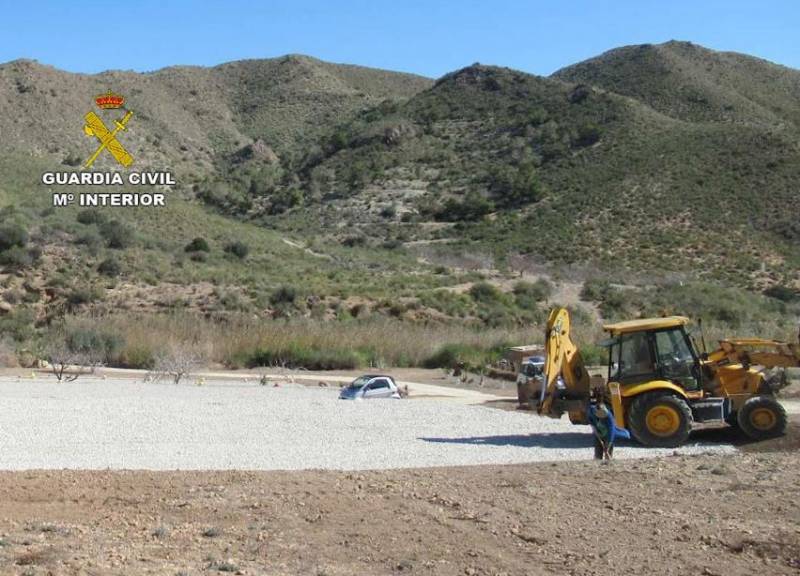
Meanwhile, a few towns over in Mazarrón, the Guardia Civil has been busy with an entirely different kind of investigation, one that involves less murder and more questionable real estate dealings. ‘Operation Mortero’ has uncovered a series of
illegal construction projects on protected land in the municipality of Mazarrón, leading to legal trouble for three people who were building without the requisite planning permission.
Among the illicit builds were a house mid-construction, a prefabricated home, and, most ambitiously, a campsite in an area of high ecological importance. Given that none of these developments had the necessary approvals, the authorities have now stepped in to put an end to these illegal builds.
Any tourist apartment that doesn’t have an official number having been registered as a Vivienda de Uso Turístico will not be allowed to have a listing on Airbnb. It’s as simple as that. The move is part of a broader effort to clean up the holiday rental market, ensuring that properties meet legal standards and offering travellers a safer, more transparent booking process.
Of course, tourism in Murcia is on a steep upward path, so this latest measure with Airbnb is also an attempt to get the housing situation under control before it spirals like it has done in places like Barcelona and Málaga. Airbnb, for its part, is even rolling out an educational campaign to help hosts understand the new rules and avoid getting caught out.
It’s a clear sign that authorities are getting serious about regulating the sector, and with the introduction of a Digital Single Window for data exchange, it’ll be harder than ever to slip under the radar. So, whether you’re renting out a spare room or managing a portfolio of properties, the message is clear: get registered, or get out.
Spain
A
collision between two buses in Barcelona earlier this week has left four people in critical condition and dozens more injured, including tourists from the UK and Italy. The accident happened on Avinguda Diagonal on Monday March 3, when one coach crashed into the back of another that was stationary at a designated drop-off point for tourists near La Pedrera.
In total, 63 people received medical attention, with four critically injured, three seriously injured and 44 sustaining minor injuries. Thankfully, 12 people escaped unharmed.
The critically injured include a pedestrian, a 60-year-old man who was struck during the collision, a tour guide from the cruise coach who was trapped in the vehicle and two cruise passengers, one of whom is a 17-year-old minor.
One of the coaches was carrying British, German and Italian cruise passengers on their way to the Port of Barcelona, where their cruise ship was scheduled to depart at 6.30pm. The second bus was transporting a group of Italian students on a day trip from Lloret de Mar. One of the injured Italian passengers is reportedly being repatriated due to facial injuries.
An investigation led by the Guardia Urbana of Barcelona suggests that one bus driver may have swerved to avoid the 60-year-old pedestrian who was crossing Avinguda Diagonal. In doing so, he struck the stationary bus, causing it to mount the footpath, crash into a tree and knock over a lamppost.
Both drivers tested negative for alcohol and drugs.
Staying in Barcelona, there’s some bad news for tourists hoping to visit the Spanish hotspot. Holiday costs are set to rise throughout Catalonia as the regional government is
considering doubling the existing tourist tax for Barcelona and nearby cities, which could see visitors paying up to €15 per person per night, depending on their accommodation.
The move is aimed at addressing the strain that increasing tourist numbers are putting on local infrastructure, housing and resources. With tourism on the rise, many locals are feeling the pinch, and the government is looking for ways to manage the impact of mass tourism.
Currently, guests at four-star hotels in Barcelona pay €5.70 per night in taxes, while those in five-star hotels pay €7.50. But under the new legislation, these prices could double, with tourists staying in other parts of Catalonia potentially paying between €1.20 and €6 per day.
At least 25% of the revenue from the tax will go towards addressing the housing crisis, which many locals blame on the surge in holiday rentals.
In fact, Spain as a whole is feeling the effects of overtourism. With a record-breaking 94 million visitors in 2024, the country is struggling to cope with the influx of holidaymakers. While tourism generated €126 billion last year, it has also led to overcrowding, rising property prices and local resentment in many areas.
Barcelona, in particular, has been at the forefront of the anti-tourism movement, with protests erupting in July 2024 and tens of thousands of people demanding lower housing costs in November of the same year.

The skeletal remains of Agostina Rubini, a 24-year-old student from Argentina, were
found in a rubbish dump in Mallorca this week, bringing an end to a desperate search for the young woman who went missing after a night out with friends.
According to investigators, Agostina had been waiting for a bus to take her home to Palma Nova, a town located southwest of the main city, when she accidentally dropped her phone in the rubbish bin. It appears that she climbed in to retrieve it but lost consciousness and was eventually killed.
The bin was collected just a few hours later and its contents were dumped at the Son Reus landfill. Agostina’s handbag was found on the ground beside the bin, sparking a month-long search of the rubbish dump. After sifting through an astonishing 60,000 tonnes of waste, Agostina's body was finally discovered when her phone's location pinged.
The last time Agostina was seen alive was just before midnight on October 2 when she parted ways with her friends. A witness who was waiting for a bus at the same stop reported seeing her handbag next to the container, but didn’t think anything of it at the time. It wasn’t until the binmen arrived to empty the bin at 12.27am that Agostina’s fate was sealed.
Investigating officers said it’s “impossible to survive inside a rubbish truck” due to the lack of oxygen.
Alicante
Eyewitnesses described the scene as chaotic, with flames and smoke billowing out of the factory at around 11.25am. Firefighters and emergency responders rushed to the scene, but despite their best efforts the master of gunpowder, Pedro Luis Sirvent, was missing for several hours. Sadly, his body was later found inside his workshop.
The causes of the explosion which led to a fire in the warehouse are still being investigated. Adrián Sirvent, one of Pedro’s sons, was treated at the scene for an anxiety attack but did not require hospitalisation.
The incident also left two other people injured, including Juanma, a 68-year-old man who suffered severe burns covering 80% of his body. He was airlifted to the Burns Unit of La Fe Hospital in Valencia, where he is receiving treatment for his injuries. A 43-year-old woman was also taken to the hospital, suffering from anxiety attacks and smoke inhalation.
The Alicante-Madrid and Alicante-Murcia AVE lines were temporarily suspended on Thursday morning at the request of the Fire Brigade, as debris from the factory had flown out onto the tracks. By 3.25pm, normal services had resumed.
In September 2024, 30-year-old Nathan Osman, a father of four from Pontypridd, Wales, lost his life on a Benidorm holiday under mysterious circumstances. Nathan had been on his first trip abroad, joining friends in the popular tourist destination on September 27.
After a night out with his group, he decided to walk back to his hotel alone as he was feeling tired. But when his friends woke up the next morning, they realised that Nathan’s bed had not been slept in.
Later that day, the devastating news came: Nathan’s body had been found at the base of a 600ft cliff, in the opposite direction of his hotel. The discovery was made by an off-duty officer.
As the family struggled to come to terms with their loss, they began to notice some disturbing inconsistencies. Someone had attempted to use Nathan’s bank cards the day after he died, raising suspicions of foul play. Nathan’s siblings, Lee and Alannah, took matters into their own hands, tracing his last movements and obtaining public CCTV footage that showed Nathan walking on the promenade. But when they asked for footage from private establishments, they were denied without an official police request.
Frustrated and desperate for answers, Lee and Alannah traveled to Benidorm to meet with local authorities, seeking a more thorough investigation into Nathan's death.
Lee expressed feeling “totally abandoned”, stating there has been “zero investigation” and that they are “fighting for answers”.
Nathan's parents, Jonathan and Elizabeth, also voiced their distress over the handling of the case. Elizabeth described the experience as being “treated like dogs” by the Spanish police, who showed “no empathy”. The uncertainty surrounding Nathan's final hours has been particularly painful for the family.
The UK Foreign, Commonwealth and Development Office has confirmed they are supporting the family and are in contact with local authorities. Despite this, the Osman family remains determined to uncover the truth about Nathan’s death,
continuing their pursuit of justice and closure.
Supposedly, weather holding, starting from this Saturday March 8 and up until the 29th, the city of Orihuela and its coastal counterpart, Orihuela Costa, invite you to embark on a journey of discovery, exploring the area’s rich cultural, historical, natural and gastronomic treasures.
One of the highlights of the
month-long series of events is the brand-new route ‘The Expansion of Orihuela and its Historical Context’, which takes place on Sunday March 9. This gastronomic adventure provides a unique opportunity to delve into the city’s rich history while savouring some of the region's finest wines. The tour culminates in a wine tasting experience, where you can indulge in the local flavours and learn about the city’s fascinating past.
For foodies, a visit to the Museo-Almazara del Tío Jose María on Sunday March 23 is a must. This interactive experience allows participants to learn about the artisanal process of oil production, complete with a tasting of premium oil.
For nature lovers, the Aguamarina natural micro-reserve located on the coast is a must-visit destination. A guided hike through the stunning landscape of Punta Prima, scheduled for Saturday March 22, promises breathtaking views and an unforgettable experience.
All routes will be available on a weekly basis and reservations can be made through the official website or by contacting the organisers via WhatsApp at 673 836 385.
Andalucía
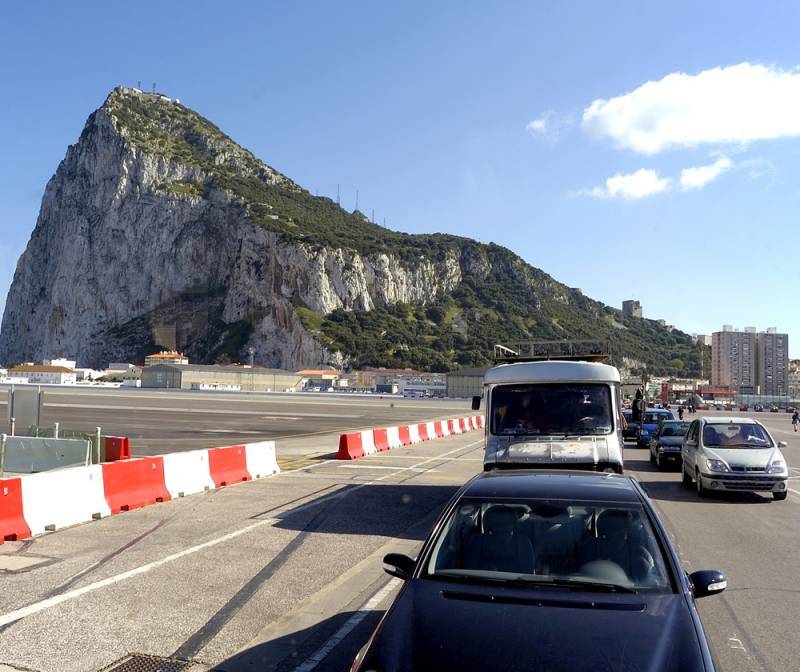
Last year, there were several reports of absolute chaos at the Gibraltar border, with long delays and frustrated travellers on both sides of the water. Just this week, the senior Spanish police officer responsible for enforcing those strict passport stamping controls that caused so many problems has been handed a
five-month suspension without pay.
The officer, a chief inspector, was found guilty of three serious offenses following an internal investigation. It turns out that he didn’t inform his superiors about the new passport stamping rules, which led to major congestion at the crossing. He also used a radio frequency antenna without permission, which didn’t help the situation.
But although the suspension has already been enforced, the officer has the right to appeal, which he has done. In fact, he’s taken it a step further and filed a legal complaint against his superiors in a Cádiz court.
He’s claiming that the border control measures weren’t being applied correctly and is demanding written instructions to clarify the procedures.
The whole controversy started when the inspector decided to enforce stricter border controls, citing post-Brexit Schengen rules. But the thing is, residents of Gibraltar are still allowed to enter Spain without any time restrictions or need for a passport and Spanish workers commuting to Gibraltar have the same privileges.
It’s all a bit confusing, and it’s clear that there’s still a lot of uncertainty surrounding Gibraltar’s border regulations, but the authorities argue that this didn’t give the officer the right to take matters into his own hands.
The case has sparked a debate about how border control rules should be interpreted and enforced. Can individual officers just decide to enforce regulations without getting the okay from higher authorities? It’s a question that will likely be answered in the appeal process and the outcome of the legal proceedings in Cádiz.
According to police sources, the investigation is still in its early stages and the identity of the deceased has not been confirmed. The authorities are waiting for the results of the post-mortem to piece together the circumstances surrounding the discovery of the body.
The body was found around 8.40pm on Wednesday March 5 by someone who was walking along the beach. As soon as the police were alerted they activated the judicial protocol to remove the body and start the official investigation.
Summer in Andalucía can be scorching hot and every year, we hear heartbreaking stories about horses collapsing under the weight of heavy carriages used to ferry tourists around the cities. It’s a disturbing sight that is all too common and it’s about time something was done to protect these beautiful animals.
The good news is that the new law prioritises the welfare of horses, ensuring they’re treated with the respect and care they deserve. Rather than banning horse-drawn carriages altogether, the legislation aims to preserve this cultural and historical tradition while making sure the horses are protected.
So, what does the new law entail? For starters, all horses will need to undergo regular health checks every six months and they won’t be allowed to work without a veterinary certificate. They’ll also need to be registered in the General Registry of Livestock Farms, and owners will be required to provide them with perfect living conditions including cleanliness, food, hydration and protection from the elements.
The law also establishes some much-needed guidelines for working horses, including a minimum age of 4 and a maximum age of 18, although owners can continue to use a horse until it’s 23 years old if it’s been certified fit and healthy. Horses will also be entitled to regular breaks, with at least two consecutive hours of rest in an 8-hour workday. Perhaps most importantly, the law prohibits the use of whips or physical punishment, ensuring that horses are treated with kindness and respect.
The new law is set to come into effect in Marbella just in time for the summer.
You may have missed…
- EU leaders agree massive increase in military spending.
European leaders have agreed to a €150 billion increase in military and defence spending as Trump’s position on Ukraine creates growing security concerns.
- Murcia’s campsites break records as international visitors drive tourism boom.
Murcia’s campsites are thriving, with January 2025 marking a record-breaking month for overnight stays. According to recent data, the Region’s campsites hosted 8,838 travellers in the first month of this year, with international visitors making up an incredible 73%.
- What are the best and worst towns in Alicante according to AI?
This is what happens if you ask ChatGPT, the AI, which is the best and worst town in the province of Alicante...
- VIDEO: Hells Angels biker fugitive apprehended in Spain.
On the run for more than two years and wanted for drug trafficking and murder, a New Zealand fugitive belonging to the Hells Angels criminal biker gang has been tracked down and arrested in Madrid.
- Spanish police issue warning of new SMS scam using fake weather alerts.
A new scam involving fraudulent SMS messages has emerged that tries to trick recipients into clicking on a dangerous link. This scam, which began circulating recently, falsely claims to provide weather alerts about heavy rainfall, but the link within the message leads to a phishing site designed to steal personal information.
And that’s the end for this week. Thank you for reading and we’ll have another edition for you next week.
Bye!



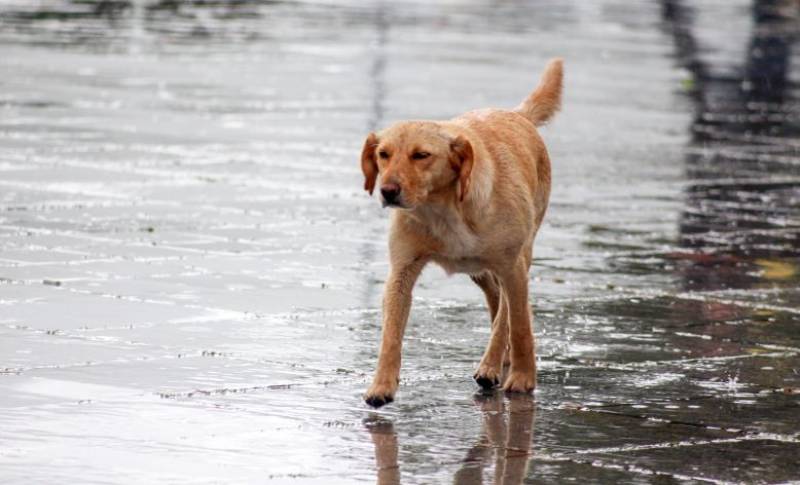
 This week brought torrential rain to parts of Spain and, as so often when it rains heavily in the south of the country, it led to the inevitable episodes of flooding, cars trapped in river swells and broken buildings.
This week brought torrential rain to parts of Spain and, as so often when it rains heavily in the south of the country, it led to the inevitable episodes of flooding, cars trapped in river swells and broken buildings. If you’re planning on taking advantage of the many great deals available on train travel at the moment, you just might want to check the latest schedules first and be prepared for some major disruptions. Rail workers across Spain are threatening yet another strike during March and April and sadly which will take place over seven days, with a mix of full-day and partial walkouts.
If you’re planning on taking advantage of the many great deals available on train travel at the moment, you just might want to check the latest schedules first and be prepared for some major disruptions. Rail workers across Spain are threatening yet another strike during March and April and sadly which will take place over seven days, with a mix of full-day and partial walkouts.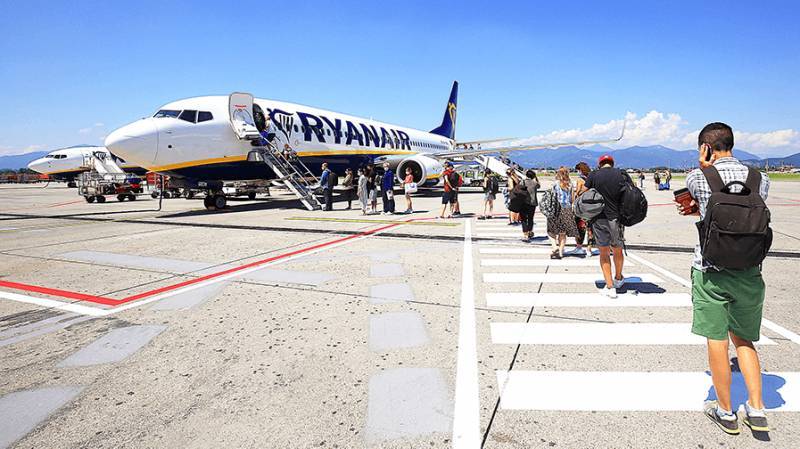
 Meanwhile, a few towns over in Mazarrón, the Guardia Civil has been busy with an entirely different kind of investigation, one that involves less murder and more questionable real estate dealings. ‘Operation Mortero’ has uncovered a series of illegal construction projects on protected land in the municipality of Mazarrón, leading to legal trouble for three people who were building without the requisite planning permission.
Meanwhile, a few towns over in Mazarrón, the Guardia Civil has been busy with an entirely different kind of investigation, one that involves less murder and more questionable real estate dealings. ‘Operation Mortero’ has uncovered a series of illegal construction projects on protected land in the municipality of Mazarrón, leading to legal trouble for three people who were building without the requisite planning permission.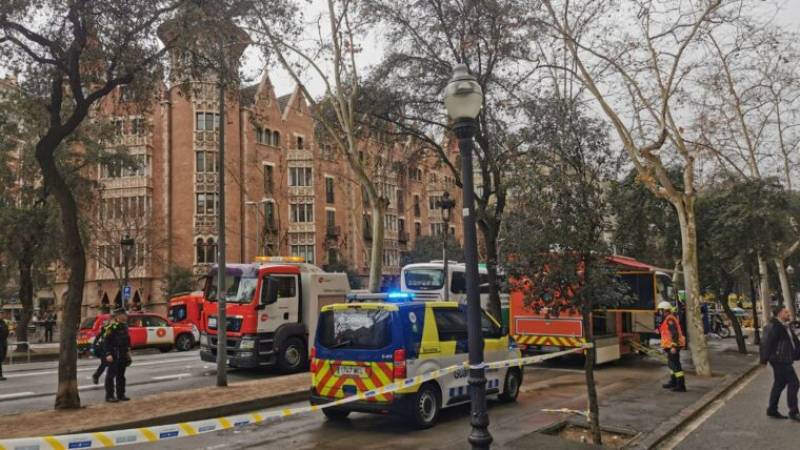
 The skeletal remains of Agostina Rubini, a 24-year-old student from Argentina, were found in a rubbish dump in Mallorca this week, bringing an end to a desperate search for the young woman who went missing after a night out with friends.
The skeletal remains of Agostina Rubini, a 24-year-old student from Argentina, were found in a rubbish dump in Mallorca this week, bringing an end to a desperate search for the young woman who went missing after a night out with friends.
 Last year, there were several reports of absolute chaos at the Gibraltar border, with long delays and frustrated travellers on both sides of the water. Just this week, the senior Spanish police officer responsible for enforcing those strict passport stamping controls that caused so many problems has been handed a five-month suspension without pay.
Last year, there were several reports of absolute chaos at the Gibraltar border, with long delays and frustrated travellers on both sides of the water. Just this week, the senior Spanish police officer responsible for enforcing those strict passport stamping controls that caused so many problems has been handed a five-month suspension without pay.